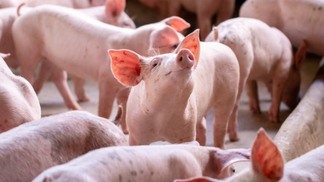Redação (05/04/07) – A Organização Internacional de Epizootias (OIE), a Associação Mundial de Veterinária Avícola e o Grupo de Pesquisa Japonês sobre Influenza Aviária estão organizando o Paris Anti-Avian Influenza 2007 (2a. Conferência sobre Influenza Aviária), que será realizado em Paris, na França, entre os dias 31 de maio e 1 de junho.
Depois do grande sucesso do evento em 2006, as entidades voltam a reunir os principais especialistas em saúde animal para discutir os avanços científicos sobre a doença, as novidades em imunologia, controle e prevenção e as estratégias para se evitar uma pandemia da Influenza Aviária entre os humanos.
Mais informações sobre o evento estão disponíveis na página: http://www.isanh.com/avian-influenza/main-informations.php
Programa
31 de Maio
8h00 – Welcome and Registration
Session 1: Political and Economic Issues of Avian influenza
8h50 – Conference Opening
9h00 – Avian Influenza and Human Health: Focus on the Situation one Year after the worldwide Outbreak
9h30 – Economic Impact of the Avian Influenza Propagation
Mr Milan Brahmbhatt, Lead adviser in the east Asia region of the world bank, USA
10h00 – Avian Influenza Epizootie: where are we standing in 2007?
Dr Bernard Vallat, OIE, Paris, France
10h30 – Break and Poster Session/Visit Exhibition Space
11h00 – Human-to-Human Contamination: an increase in the cases number?
11h20 – Estimation of potential global pandemic influenza mortality
Dr Christopher Murray, Harvard University, Cambridge, USA
11h40 – Short oral communications
12h30 – Lunch and Poster Session/Visit Exhibition Space
Session 2: Latest scientific advances on the H5N1 virus
14h00 – Emergence of a new H5N1 influenza variant in China
14h20 – Haemagglutinin mutations and binding of H5N1 to human-types receptors: one more step to the pandemic?
14h40 – Role of host cytokines responses in the pathogenesis of Avian H5N1 influenza viruses in mice
Dr Terrence Tumpey, Centers for disease control and prevention, Atlanta, USA
15h00 – Can the structure of H5N1 neuraminidase lead to the design of new drugs?
Dr Rupert Russell, Centre for Biomolecular Sciences, St Andrews, United Kingdom
Session 3: Prevention and Treatments: Focus on vaccine and drugs development
15h20 – Promising findings in preclinical studies with live attenuated candidate vaccine
15h40 – Safety and Immunogenicity of an inactivated adjuvanted whole-virion influenza A (H5N1) vaccine
16h00 – Break and Poster Session / Visit Exhibition Space
16h20 – Safety and immunogenicity of an inactivated split-virion influenza A/Vietnam/1194/2004 (H5N1) vaccine: phase I randomised trial
16h40 – Last advances on vaccines development and production: a medical and political point of view
17h00 – Inhibition of influenza virus infection by a novel antiviral peptide that targets viral attachment to cells
Dr Stacey Schultz-Cherry, Department of Medical Microbiology and Immunology, University of Wisconsin, Madison, USA
17h20 – Oseltamivir therapy in ferrets inoculated with H5N1 influenza virus
Dr Govorkova, Department of Infectious Diseases, St. Jude Children””s Research Hospital,Memphis, USA
Session 4: Latest scientific advances on H5N1 Detection
17h40 – Diagnostic assay for H5N1 influenza viruses
Dr Nader Pourmand, Stanford University, Palo Alto, USA
18h00 – Short oral communications
Gala Dinner
1 de Junho
Session 5: Prevention of Avian Influenza in animals
9h00 – Avian Influenza in animals: state of the art
9h30 – Predicting the global spread of H5N1 avian Influenza
Dr Marm Kilpatrick, Consortium for Conservation Medicine, New-York, USA
10h00 – Early Detection and application of preventive measures
Dr Stefano Marangon, Instituto Zooprofilattico Sperimentale delle Venezie, Padova, Italy
10h30 – Break and Poster Session / Visit Exhibition Space
11h00 – Implementation of vaccination: the do’s and don’ts
Dr Christianne Bruschke, OIE, Paris, France
11h30 – Avian Influenza Eradication: why is it so difficult? Example of Hong-Kong, Egypt and other places.
12h00 – Short oral communications
12h40 – Lunch and Poster Session /Visit Exhibition Space
14h00 – Round table discussion: Disaster Management Response
The following questions will be discussed with the chairmen:
Pr Koos Van der Velden, EISS, The Netherlands
Dr Déirdre Hollingsworth, Department of Infectious Disease Epidemiology, Imperial college, London, United Kingdom
• Pandemic preparation: is Europe ready? Can the pandemic be predicted?
• What are the practical measures and ethical outcomes of a pandemic outbreak?
• Controlling of pandemic influenza spread: the example of travel restrictions
15h00 – End of the conference
15h30 – Workshop in French
Avian Flu Pandemic: preparing for the worst case scenario
The organizing committee is preparing to face a possible avian flu pandemic in France by contemplating worst case scenario.
18h00 – End of the workshop











